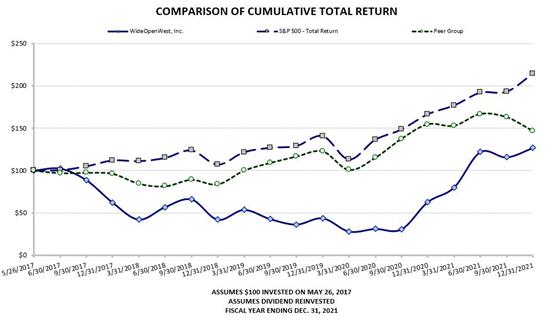It is also possible that further amendments to the Communications Act may be enacted, which could have a negative impact on our interconnection agreements. The contractual arrangements for interconnection generally contain provisions for incorporation of changes in governing law. Thus, future FCC, state PSC and/or court decisions may negatively impact the rates, terms and conditions of the interconnection services that we have obtained and may seek to obtain under these agreements, which could adversely affect our operations, business, financial condition or results of operations. Our ability to compete successfully in the provision of services will depend on the nature and timing of any such legislative changes, regulations and interpretations and whether they are favorable to us or to our competitors.
Applicable laws and regulations pertaining to our industry are subject to change.
We are subject to a variety of laws and regulations at the federal, state, and local jurisdictions in which we operate. Specifically, we are subject to regulation of our video services relating to rates, equipment, technologies, programming, levels and types of services, taxes and other charges. The current telecommunications and cable legislation and regulations are complex and in many areas set forth policy objectives to be implemented by regulation at the federal, state and local levels.
Additionally, we are subject to environmental safety and health laws and regulations, including those governing such matters as the generation, storage, reporting, treating, handling, remediation, use, transportation and disposal of, and exposure to hazardous materials, the emission and discharge of hazardous materials into the atmosphere, the emission of electromagnetic radiation, the protection of wetlands, historic sites, and threatened and endangered species. Some of our sites have battery and diesel fuel powered backup generators or sources, or may have potential contamination risks from historical or surrounding activities. Under certain environmental laws and regulations, we may be liable for the costs of remediating contamination, regardless of fault, and these costs could be significant.
The exact requirements of applicable law are not always clear, and the rules affecting our businesses are always subject to change. For example, the FCC may interpret its rules and regulations in enforcement proceedings in a manner that is inconsistent with the judgments we have made. Likewise, regulators and legislators at all levels of government may sometimes change existing rules or establish new rules. Congress, for example, considers new legislative requirements for cable operators virtually every year, and there is always a risk that such proposals (if unfavorable to us) will ultimately be enacted. In addition, federal, state or local governments and/or tax authorities may change tax laws, regulations or administrative practices that could adversely affect our operations, business, financial condition or results of operations.
“Net neutrality” legislation or regulation could limit our ability to operate our high-speed data service business profitably and manage our broadband facilities efficiently.
In January 2018, the FCC released a decision rescinding various “net neutrality” requirements governing how broadband Internet access providers were permitted to offer broadband service. As a result, under the current approach, broadband Internet access providers must publicly disclose detailed information regarding their service offerings, Internet traffic management processes, and other practices affecting broadband customers, but are not otherwise limited by federal law in their ability to block, throttle, or prioritize specific types of Internet traffic. The FCC also held that states are preempted (prohibited) from enacting their own versions of these or similar requirements.
On October 1, 2019, a federal appeals court upheld most of the FCC’s decision, but it directed the agency to give further consideration to several issues and reversed the FCC’s blanket preemption of state rules, holding that such state laws could only be prohibited on a case-by-case basis, and only when they conflict with state or federal policy. No party appealed that decision. On October 27, 2020, the FCC adopted a decision reaffirming other aspects of its earlier decision. That decision has been appealed, both in court and before the FCC. We cannot predict how a future FCC will address internet service regulation. In the meantime, several states have adopted, or are considering, net neutrality requirements of their own. Some of these are currently subject to legal challenge by broadband providers’ trade associations in federal court. We cannot predict with any certainty the likely timing or outcome of these or future challenges, or how state efforts to adopt net neutrality requirements will continue to evolve.
